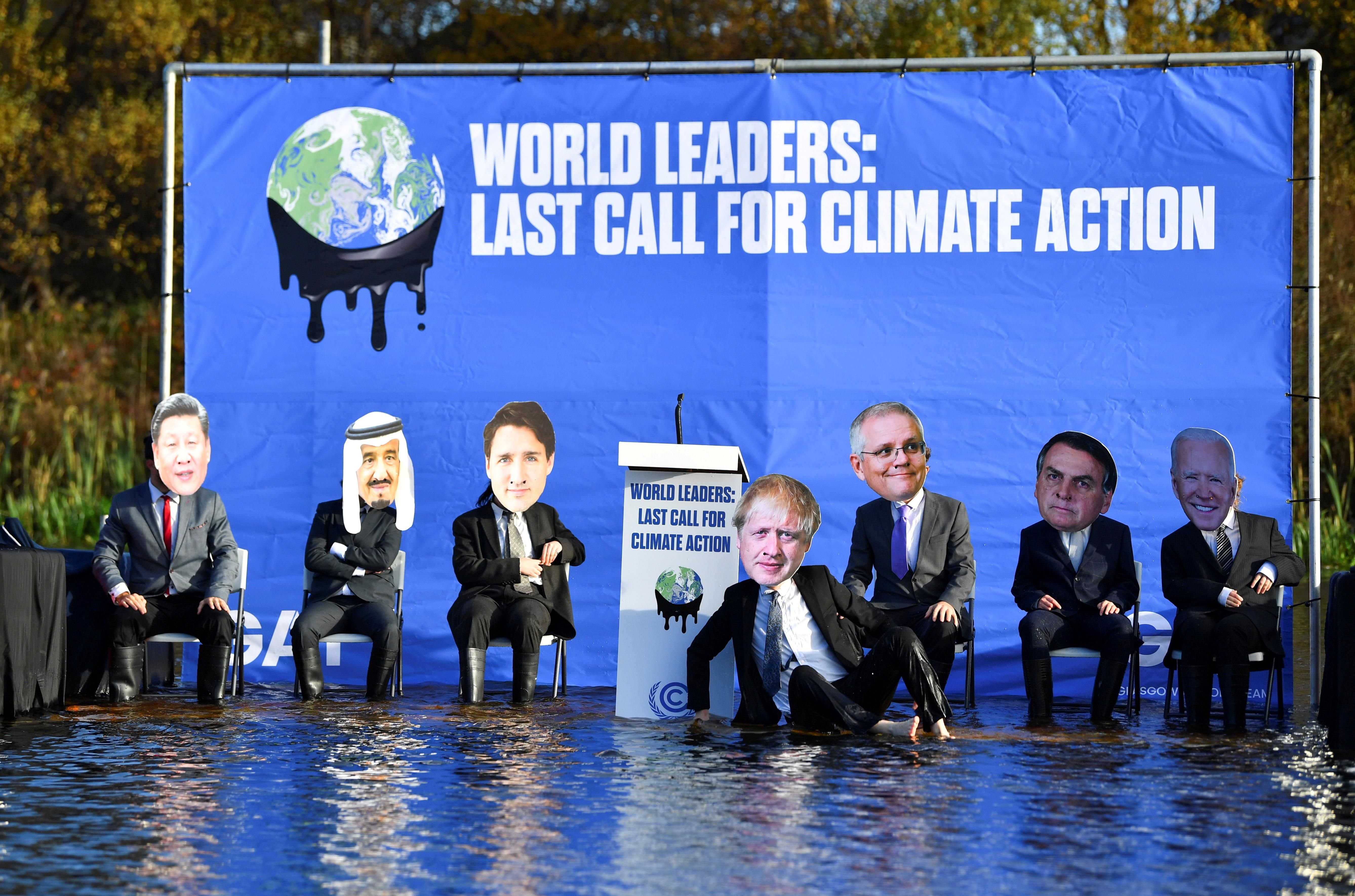November 10, 2021
The COP26 climate summit in Glasgow is almost done and dusted, with some ambitious commitments and breakthroughs from governments and corporations to more aggressively tackle the climate disaster. Yet, though there seems to be broad agreement on what needs to be done to stop the planet getting hotter — like getting to Net Zero emissions over the next few decades — big disagreements remain on how to pull it off.
As countries try to turn jobs green while also boosting exports to keep foreign cash flowing in, reliance on protectionist economic policies is becoming an increasing point of friction between governments. Here are two juicy examples where this dynamic is playing out.
The US rumbles with Mexico and Canada over cars. The Biden administration has united Mexico and Canada in rage over its proposal to roll out financial incentives for Americans to buy US-made electric vehicles, with additional tax credits for buying a car with a US-made battery or made at a unionized factory. Some American political nerds weren't surprised at all given Biden's longtime bonafides as a pro-union warrior.
Ottawa, however, was shocked and is now furious, calling it a protectionist move that'll encourage automakers to build electric vehicle factories in the US rather than Canada. That's a massive deal because the auto industry is one of Canada's largest manufacturing sectors, contributing more than $12.5 billion to its GDP in 2020. Mexico, for its part, is also riled up, saying that the US proposal undermines its plans to transition its equally crucial auto industry to electric models, which is central to Mexico's overall climate change mitigation strategy.
Mexico City and Ottawa have accused Washington of violating the USMCA — a NAFTA replacement that was painstaking to negotiate — which was supposed to guarantee a level playing field for the three countries. Canada and Mexico could now bring a case forward under the pact's dispute mechanisms.
The most exclusive club in Europe: carbon. The European Union, which has made some of the most ambitious climate pledges in the world to date, has proposed a carbon tax on specific imports entering the bloc, including steel, fertilizer, oil and cement. Essentially, Brussels wants to impose carbon tariffs so that foreign producers will be subject to the same financial burdens as European manufacturers when making similar products.
Indeed, by putting a price on carbon emissions — and forcing EU-reliant economies to pay up or lose big business — the European Commission has figured out a way to pay, at least in part, for its very expensive Green Deal.
What's more, some countries are up in arms that Brussels has been pushing for wealthy, like-minded countries to join its carbon pricing scheme in exchange for access to the EU's single market, excluding tariffs and quotas already in place for other goods. (Canada is now looking into its own scheme). Critics say that setting up a "trans-Atlantic climate club" – whereby all states would either impose a border carbon tax or an equivalent emission trading system – is discriminatory: Australia's coal-loving Prime Minister Scott Morrison, for example, said the push is "simply trade protectionism by another name." Meanwhile, Brazil, South Africa, China and India have also complained that a far-reaching carbon border tax would be a "trade barrier," unfairly penalizing developing nations who are still reliant on fossil fuels to grow their economies.
While the EU has pulled back a bit in recent months — giving countries five years to get their climate priorities in check — the US has not ruled out imposing tit-for-tat tariffs if Brussels slaps carbon levies on US goods. Meanwhile, countries like China, Russia and Turkey — which stand to lose a lot from an EU carbon tax — have accused Brussels of violating international trade principles.
What now? Some climate policy advocates are worried that using coercive tools like tariffs and tax credits could backfire, giving ammunition to the naysayers who believe that climate policy makes for bad economics.
In the end, will global efforts to protect the planet run aground on national efforts to protect certain industries?
From Your Site Articles
- Kerry: Putin has bigger problems than Ukraine - GZERO Media ›
- Europe's heat wave highlights climate & energy dependence concerns - GZERO Media ›
- Europe's heat wave highlights climate & energy dependencies - GZERO Media ›
- Kerry: Putin has bigger problems than Ukraine - GZERO Media ›
- World trade at risk without globalization, warns WTO chief Ngozi Okonjo-Iweala - GZERO Media ›
- Bjorn Lomborg wants to redefine climate change's impact on our lives and economy - GZERO Media ›
More For You
Hellenic coast guard performs SAR operation, following migrant's boat collision with coast guard off the Aegean island of Chios, near Mersinidi, Greece, February 4, 2026.
REUTERS/Konstantinos Anagnostou
15: The number of migrants who died after their boat accidentally collided with a Greek Coast Guard vessel in the Aegean Sea on Tuesday. Two dozen people were rescued.
Most Popular
Walmart is investing $350 billion in US manufacturing. Over two-thirds of the products Walmart buys are made, grown, or assembled in America, like healthy dried fruit from The Ugly Co. The sustainable fruit is sourced directly from fourth-generation farmers in Farmersville, California, and delivered to your neighborhood Walmart shelves. Discover how Walmart's investment is supporting communities and fueling jobs across the nation.
Workers repair a pipe at a compound of Darnytsia Thermal Power Plant which was heavily damaged by recent Russian missile and drone strikes, amid Russia's attack on Ukraine, in Kyiv, Ukraine February 4, 2026.
REUTERS/Valentyn Ogirenko
Democratic Alliance leader John Steenhuisen announced Wednesday that he will not run for a third term as leader of the liberal, pro-business party, after months of internal pressure over a host of controversies – including allegations, since cleared, that he used the party credit card for Uber Eats.
© 2025 GZERO Media. All Rights Reserved | A Eurasia Group media company.
